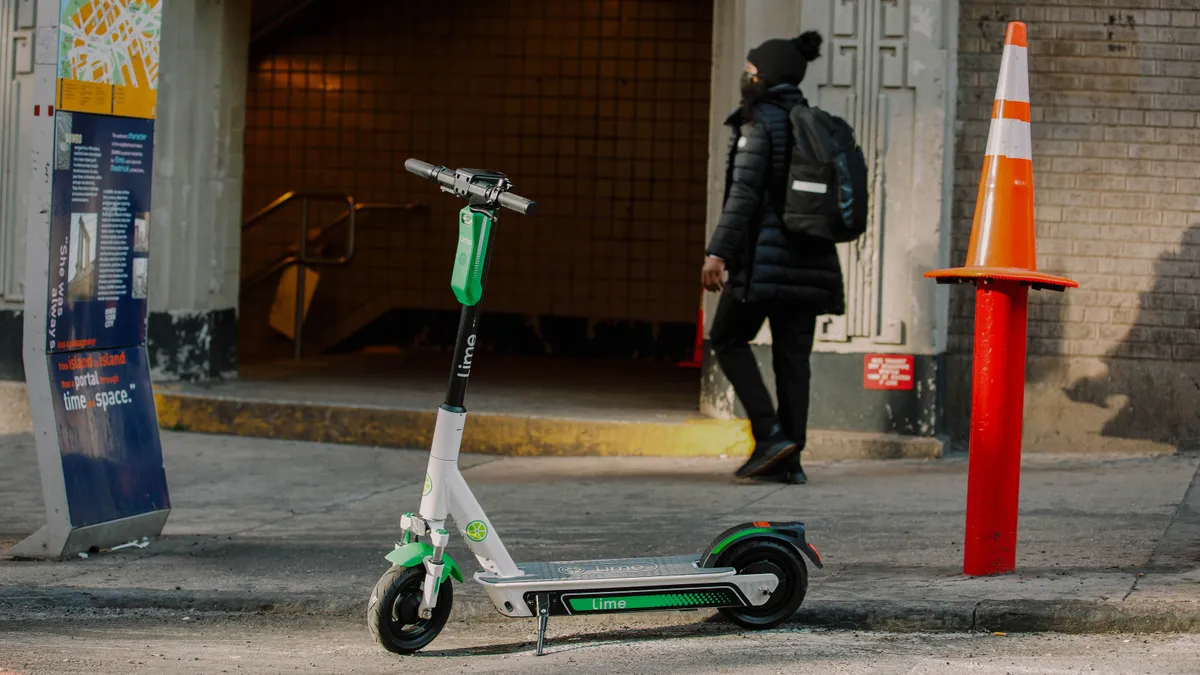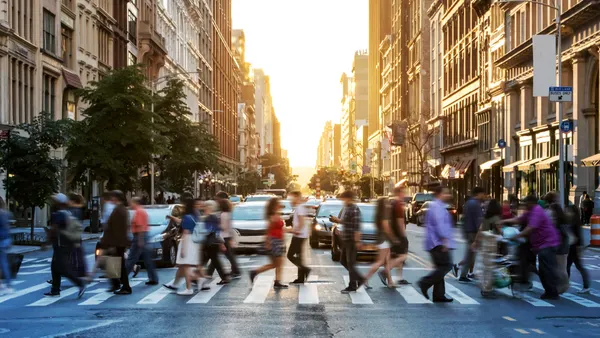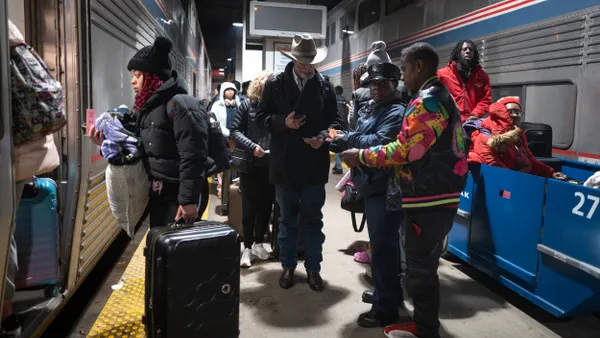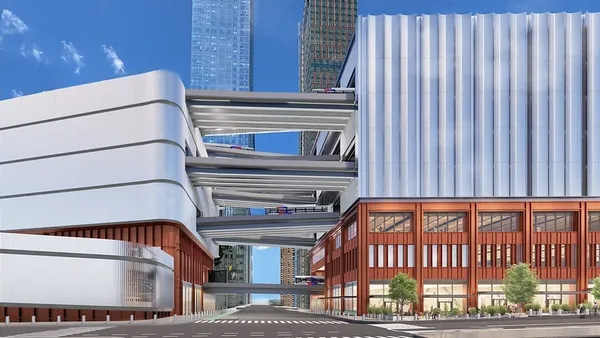Dive Brief:
- Lime has launched a global "People-First Cities" campaign to mobilize its millions of riders to support "complete streets" — roadways designed for safe and accessible transportation across modes — and to become advocates for improving the safety of urban infrastructure, Lime Advocacy Director Jonathan Perri told Smart Cities Dive exclusively.
- Lime, which recently joined the Complete Streets Coalition, is encouraging users to contact their members of Congress to support the Complete Streets Act, sponsored by Sen. Ed Markey, D-Mass., and Rep. Steve Cohen, D-Tenn. So far, about 1,000 Lime users have contacted their representatives or senators, according to Perri.
- The micromobility company also intends to encourage users to voice their support for the Biden administration’s proposed $2 trillion American Jobs Plan, which could potentially incorporate the Complete Streets Act, according to Lime. The company hopes its presence in certain cities — Nashville, Tennessee; Austin, Texas; and Oklahoma City — with Republican House members or senators will help push those political leaders to support the infrastructure plan as well.
Dive Insight:
The pandemic overhauled transportation and micromobility patterns nearly overnight, pushing more people onto bikes and scooters. In response to those changes, many cities turned to tactical urbanism solutions like slow streets and pop-up bike lanes.
Lime studied the impacts of those changes among its users across the globe and found a 111% increase in trips by its users on streets with new cycle lanes between February and June 2020 in Paris, London and Berlin.
And in San Francisco, the company recently found that while its vehicles saw a 41% decrease in trips from November 2019 to November 2020, ridership increased 28% on the city's recently added "Slow Streets."
"We have a lot of riders who probably haven't noticed the need for infrastructure in their cities until they start riding with Lime," Perri said. "And I think the need for infrastructure becomes more and more apparent to our riders as they ride more."
The company intends to encourage local and federal leaders to keep many of those popular pandemic-fueled infrastructure changes post-COVID, in part through efforts like the Complete Streets Act.
The federal initiative would provide several potential benefits for micromobility vehicle users and pedestrians by setting aside 5% of annual federal highway funds for Complete Streets projects, requiring states to provide technical aid and funds to communities that create such projects, and directing localities to implement Complete Street policies that meet certain standards to access funding, according to a Smart Growth America blog post.
The Biden administration’s American Jobs Plan is an opportunity to move toward a people-first approach to city planning, according to Perri. The plan calls for a $20 billion effort to fund safety improvements for all road users, including pedestrians and cyclists, and a new "Safe Streets for All" program that would fund state and local Vision Zero plans.
Transportation Secretary Pete Buttigieg has also been a vocal proponent of such efforts, citing his own experience with Complete Streets as mayor in South Bend, Indiana, earning praise from some cycling advocates.
"In the past bicycling and walking have either seemed to be an afterthought for our friends, or a waste of federal funding for our detractors. This Secretary's constant refrain of making a people-centric, equitable transportation system may be our opportunity to be a constructive part of the solution," the League of American Bicyclists wrote in an April blog post.
Looking ahead, as localities seek to embrace some of these potential changes to city streets, Perri said one of the biggest challenges will be continuing to reshape the narrative about the role of cars in cities and challenging mindsets about how cities are traditionally built.











